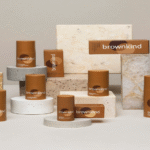Just weeks after issuing its first conditional license to a recreational marijuana dispensary, New York has published its much-anticipated rules for product delivery. Though there is room for improvement, the rules do a very good job of establishing how delivery will ultimately work in the Empire state. The rules could be a model for other states to follow.
Though delivery is not legal in every state where medical or recreational cannabis is allowed, lawmakers and regulators are both coming to realize that delivery is the future. If they hope to help their respective industries grow, they realize they will have to find a way to make delivery work.
In the states where delivery is legal, rules vary. New York’s rules look fairly permissive compared to the more conservative rules in Utah. Interestingly enough, Utah has allowed delivery for more than a year. Still, it is a hit or miss enterprise in the Beehive State.
Delivery Rules in New York
Delivery rules drafted by New York regulators were, according to their own words, designed to jumpstart the nascent recreational market. As such, regulators seem to be giving delivery providers as much room as they can.
In order to deliver, a cannabis dispensary must be licensed. Those with delivery licenses will be allowed to set up temporary warehouses from which delivery can occur. In the meantime, they are expected to be working on establishing permanent facilities, whether it be a dispensary or a permanent delivery-only location.
The rules also stipulate that:
- in-person orders cannot be taken at warehouses
- all orders must be taken over the phone or online
- orders must be paid for in advance; drivers will not be able to accept payment
- deliveries can be made via bicycles, scooters, or motor vehicles.
The warehouse idea is one that would be especially useful in Utah. Considering how rural Utah is compared to New York, being able to establish delivery-only warehouses throughout the Beehive State would probably make a significant difference.
Delivery Rules in Utah
In addition to having one of the most restrictive medical cannabis laws in the nation, Utah’s delivery rules are equally restrictive. According to the operators of Utah’s cannabis dispensary Beehive Farmacy, delivery providers in the state must:
- equip their vehicles with specific features
- deliver product from a licensed location
- deliver products only to customer homes
- make delivery only to valid medical cannabis cardholders
- accept cash payments at the time of delivery.
One of the big challenges in Utah is geography. Although the majority of the state’s residents live in metropolitan areas like Salt Lake City, Brigham City, and Provo, there is still a significant rural population scattered throughout the state. Some rural locations are more than an hour away from the nearest metropolitan location.
Furthermore, all but one of the state’s 15 licensed dispensaries are located in urban areas. For them to deliver to more rural areas is financially challenging. To date, there is only one delivery service willing to cover the entire state.
Delivery Helps Customers
If Utah dispensaries were allowed to set up rural delivery-only warehouses, they could probably make home delivery a more attractive option. In addition, doing so would help their customers through easier access. Rural customers would not need to drive such long distances to get to and from a pharmacy.
While Utah continues to fine-tune its delivery program, New York is just getting started with its own program. It will be interesting to see how it goes in the Empire State. Even modest success would give other states reason to try New York’s model.





Leave a Reply
You must be logged in to post a comment.